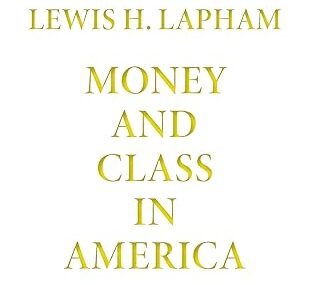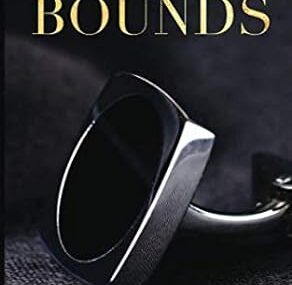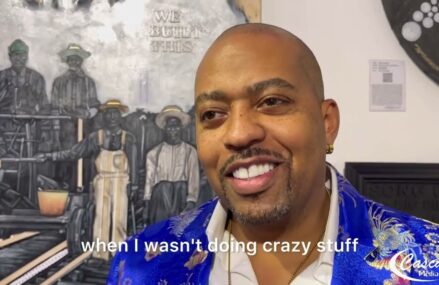Vaughan began her solo career in 1945 by freelancing on 52nd Street in New York City at the Three Deuces, the Famous Door, the Downbeat, and the Onyx Club. She spent time at Braddock Grill next to the Apollo Theater in Harlem. On May 11, 1945, she recorded “Lover Man” for Guild with a quintet featuring Gillespie and Parker with Al Haig on piano, Curly Russell on double bass, and Sid Catlett on drums. Later that month, she went into the studio with a slightly different and larger Gillespie/Parker aggregation and recorded three more sides.
After being invited by violinist Stuff Smith to record the song “Time and Again” in October 1945, Vaughan was offered a contract to record for Musicraft by owner Albert Marx, although she would not begin recording as a leader for Musicraft until May 7, 1946. In the intervening time, she recorded for Crown and Gotham and began performing regularly at Café Society Downtown, an integrated club in New York’s Sheridan Square.
While at Café Society, Vaughan became friends with trumpeter George Treadwell, who became her manager. She delegated to him most of the musical director responsibilities for her recording sessions, allowing her to concentrate on singing. Over the next few years, Treadwell made changes in Vaughan’s stage appearance. Aside from a new wardrobe and hairstyle, she had her teeth capped, eliminating a gap between her two front teeth.
Her recordings for Musicraft included “If You Could See Me Now” (written and arranged by Tadd Dameron), “Don’t Blame Me”, “I’ve Got a Crush on You”, “Everything I Have Is Yours” and “Body and Soul”. With Vaughan and Treadwell’s professional relationship on solid footing, the couple married on September 16, 1946.
In 1947, Vaughan performed at the third Cavalcade of Jazz concert held at Wrigley Field in Los Angeles which was produced by Leon Hefflin, Sr. on September 7, 1947. The Valdez Orchestra, The Blenders, T-Bone Walker, Slim Gaillard, The Honeydrippers, Johnny Otis and his Orchestra, Woody Herman, and the Three Blazers also performed that same day.[8]
Vaughan’s recording success for Musicraft continued through 1947 and 1948. Her recording of “Tenderly”—she was proud to be the first to have recorded that jazz standard[9]—became an unexpected pop hit in late 1947. Her December 27, 1947, recording of “It’s Magic” (from the Doris Day film Romance on the High Seas) found chart success in early 1948. Her recording of “Nature Boy” from April 8, 1948, became a hit around the time the popular Nat King Cole version was released. Because of a second recording ban by the musicians’ union, “Nature Boy” was recorded with an a cappella choir. 1948–53: Stardom and the Columbia years
The musicians’ union ban pushed Musicraft to the brink of bankruptcy. Vaughan used the missed royalty payments as an opportunity to sign with the larger Columbia record label. After the settling of legal issues, her chart successes continued with “Black Coffee” in the summer of 1949. While at Columbia through 1953, she was steered almost exclusively to commercial pop ballads, several with success on the charts: “That Lucky Old Sun”, “Make Belief (You Are Glad When You’re Sorry)”, “I’m Crazy to Love You”, “Our Very Own”, “I Love the Guy”, “Thinking of You” (with pianist Bud Powell), “I Cried for You”, “These Things I Offer You”, “Vanity”, “I Ran All the Way Home”, “Saint or Sinner”, “My Tormented Heart”, and “Time”.
She won Esquire magazine’s New Star Award for 1947, awards from Down Beat magazine from 1947 to 1952, and Metronome magazine from 1948 to 1953. Recording and critical success led to performing opportunities, with Vaughan singing to large crowds in clubs around the country during the late 1940s and early 1950s. In the summer of 1949, she made her first appearance with a symphony orchestra in a benefit for the Philadelphia Orchestra entitled “100 Men and a Girl.” Around this time, Chicago disk jockey Dave Garroway coined a second nickname for her, “The Divine One”, that would follow her throughout her career. One of her early television appearances was on DuMont’s variety show Stars on Parade (1953–54) in which she sang “My Funny Valentine” and “Linger Awhile”.
In 1949, with their finances improving, Vaughan and Treadwell bought a three-story house on 21 Avon Avenue in Newark, occupying the top floor during their increasingly rare off-hours at home and moving Vaughan’s parents to the lower two floors. However, business pressures and personality conflicts led to a cooling in Treadwell and Vaughan’s relationship. Treadwell hired a road manager to handle her touring needs and opened a management office in Manhattan so he could work with other clients.
Vaughan’s relationship with Columbia soured as she became dissatisfied with the commercial material and its lackluster financial success. She made some small-group recordings in 1950 with Miles Davis and Bennie Green, but they were atypical of what she recorded for Columbia.



